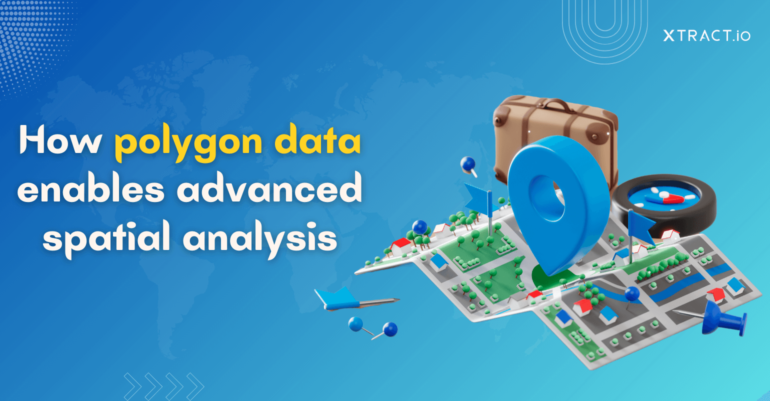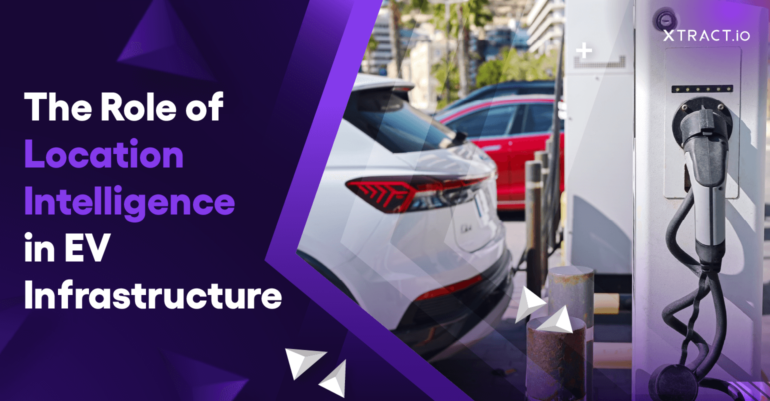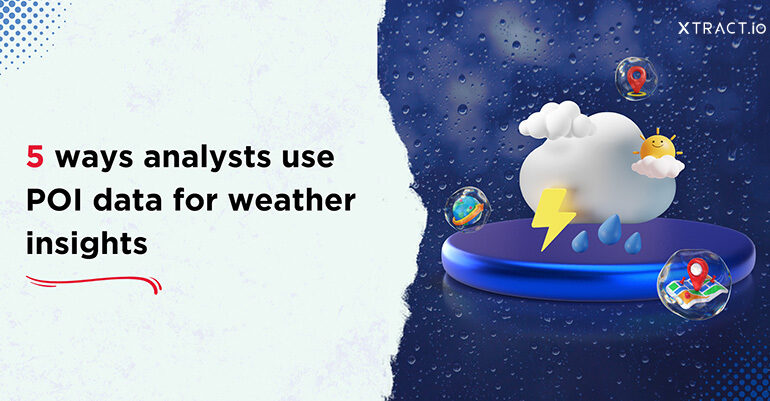Smart cities are rapidly emerging as a solution to address the challenges of urbanization. Location-based technologies are pivotal in this transformation by leveraging geospatial data for smarter city development. As per MarketsandMarkets report, the global smart cities market is projected to reach $820.7 billion by 2025, indicating the growing importance of these technologies.
This blog aims to delve into five key ways location-based technologies can be harnessed to build smarter cities, revolutionizing transportation systems, urban planning, public safety, resource management, and citizen engagement. By exploring these avenues, we can grasp the tangible benefits and possibilities that location-based technologies offer for future urban environments
Enhanced Transportation Systems
The advancement of location-based technologies has revolutionized transportation systems in smart cities, paving the way for more efficient and sustainable mobility solutions. Location data and real-time traffic data have proven to be a game-changer in managing urban congestion.
Intelligent transportation systems (ITS) powered by location-based technologies have also significantly optimized routing and reduced congestion. In Singapore, the Land Transport Authority utilizes an advanced GPS-based system called the Expressway Monitoring Advisory System (EMAS) that employs location data from vehicles to monitor traffic conditions in real-time, enabling proactive management of incidents and congestion. This has resulted in a 12% reduction in travel time and a 22% decrease in accidents.
Furthermore, location-based apps have transformed public transportation planning and management. For instance, Uber in the United States has introduced a comprehensive app that integrates multiple transportation options into a single platform. You can book taxis, bikes, etc., compare prices, or even plan and pre-book your trip. As a result, the use of public transportation increased by up to 6% in Chicago. This shift towards shared mobility has the potential to alleviate traffic congestion, reduce greenhouse gas emissions, and enhance overall transportation efficiency in urban areas.
By leveraging location-based technologies, cities can optimize transportation systems, reduce congestion, and provide residents with convenient, sustainable, and personalized travel options, ultimately leading to improved mobility and a greener future.
Improving Urban Planning and Infrastructure
Location-based technologies have become indispensable for improving smart city urban planning and infrastructure development. By harnessing geospatial data and analytics, cities can make informed decisions regarding resource allocation and land use. Integrating geospatial data in urban planning enables cities to optimize infrastructure development.
For example, in Barcelona, Spain, the city government utilizes location-based analytics to identify underutilized spaces and prioritize urban regeneration projects. This data-driven approach has transformed abandoned industrial areas into vibrant, sustainable neighborhoods, enhancing the city’s overall livability. Leveraging location-based technologies in urban planning and infrastructure development empowers cities to optimize resources, create sustainable communities, and enhance emergency response capabilities. By making data-driven decisions, smart cities can achieve efficient land use, reduce urban sprawl, and create inclusive urban environments that cater to the needs of their residents.
Enhancing Public Safety and Security
Recent advancements in location-based technologies have significantly improved public safety and security in smart cities, enabling proactive measures and efficient emergency response systems. Implementing location-based monitoring and surveillance systems has proven instrumental in preventing and addressing crime. Geofencing technology has also helps to provide security in public spaces. By establishing virtual perimeters using GPS or RFID technology, cities can monitor and control access to specific areas.
Mobile apps and platforms also utilize geolocation data to connect distressed individuals with the nearest emergency services and provide real-time updates on their locations. For instance, the RapidSOS app in the United States enables individuals to share their precise location with emergency services, reducing response times and improving outcomes in critical situations.
By leveraging location-based technologies, cities can significantly enhance public safety and security. These technologies enable proactive crime prevention, secure public spaces, and expedite emergency response, fostering safer and more resilient communities in smart cities.
Enabling Efficient Resource Management
Smart cities have improved sustainability and efficiency in key areas such as energy, waste, and water, and all this is because of location-based technologies. Smart energy management can be achieved by leveraging location-based sensors and data analytics. Waste management can be significantly optimized through location-based tracking and collection systems. In Seoul, South Korea, smart bins equipped with sensors and GPS technology are deployed throughout the city. These bins monitor fill levels in real-time and optimize waste collection routes, reducing unnecessary trips and associated emissions. This innovation has led to a 15% decrease in collection costs and a more sustainable waste management system.
Similarly, smart water management is another critical aspect that can benefit from location-based technologies. Using geolocation data, cities can track water usage patterns, identify leaks, and optimize distribution networks. Leveraging location-based technologies in resource management empowers smart cities to optimize energy consumption, streamline waste collection, and ensure efficient water usage. By making data-driven decisions and employing innovative solutions, cities can achieve significant resource savings, reduce environmental impact, and build a more sustainable future.
Enhancing Citizen Engagement and Participation
Utilizing location-based mobile apps, cities can gather real-time feedback from residents on various aspects such as infrastructure, public services, and urban planning. For example, in Barcelona, the City Sentinel app allows citizens to report issues like potholes, graffiti, or malfunctioning streetlights by simply geolocating the problem and submitting a report. This citizen-led approach enables efficient problem-solving and fosters a sense of ownership and collaboration between residents and the city.
Location-based services can also provide personalized urban experiences to citizens. These technologies facilitate feedback mechanisms, personalized experiences, and community collaboration, fostering a sense of belonging and creating a stronger bond between residents and their cities. Smart cities can reflect their communities’ diverse needs and aspirations with increased citizen engagement and participation.
Conclusion
Location-based technologies are driving the transformation of cities, enabling smarter, more sustainable, and interconnected urban environments. These technologies catalyze positive change, from optimizing transportation systems and urban planning to enhancing public safety, resource management, and citizen engagement. Real-time data, analytics, and personalized experiences empower cities to make data-driven decisions, foster collaboration, and create inclusive communities.
As we embrace these technologies, it is crucial to prioritize privacy, data security, and equitable access. By leveraging location-based technologies, cities can create vibrant, resilient, and livable spaces that improve residents’ well-being and quality of life in the evolving landscape of smart cities. Connect with Xtract.io for a quick demo!







